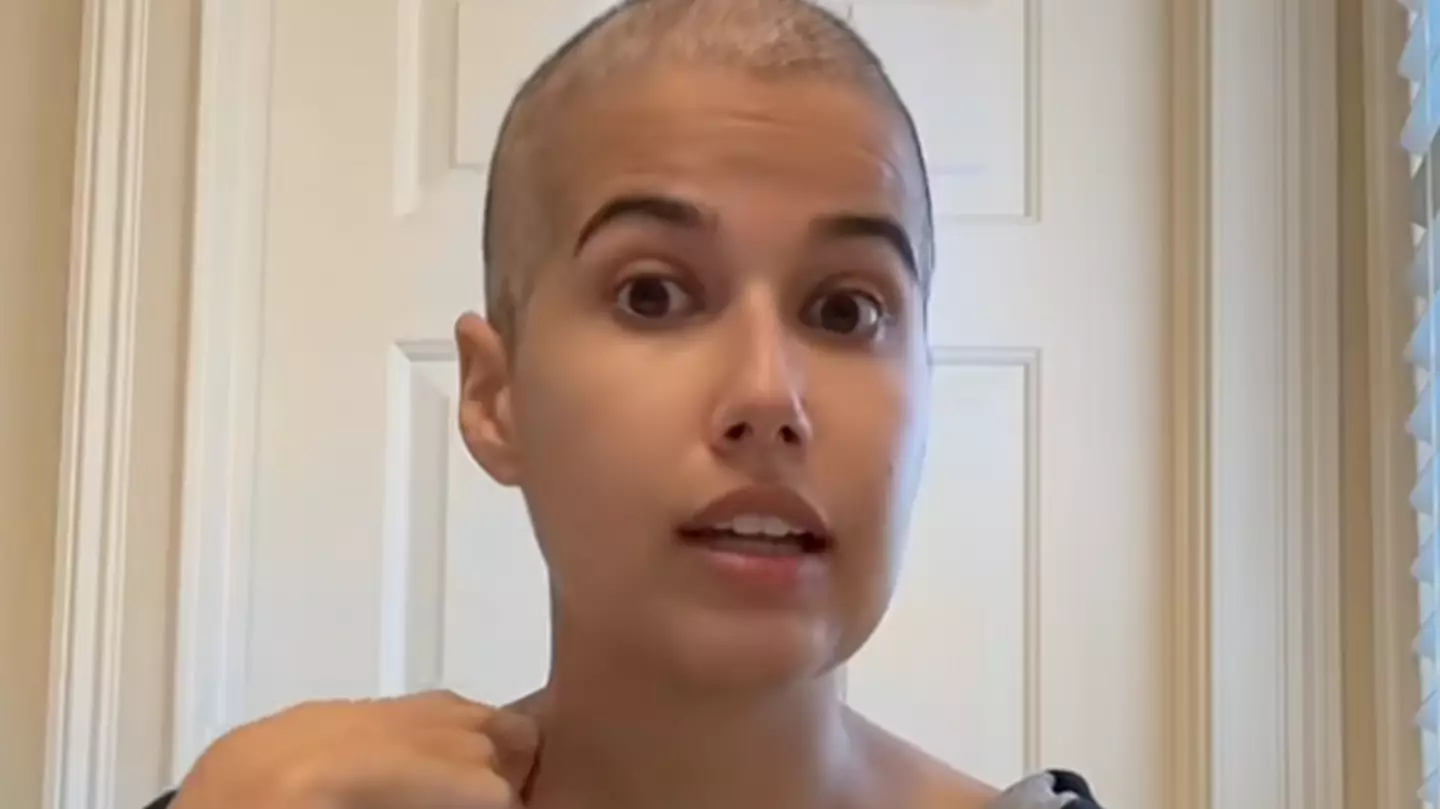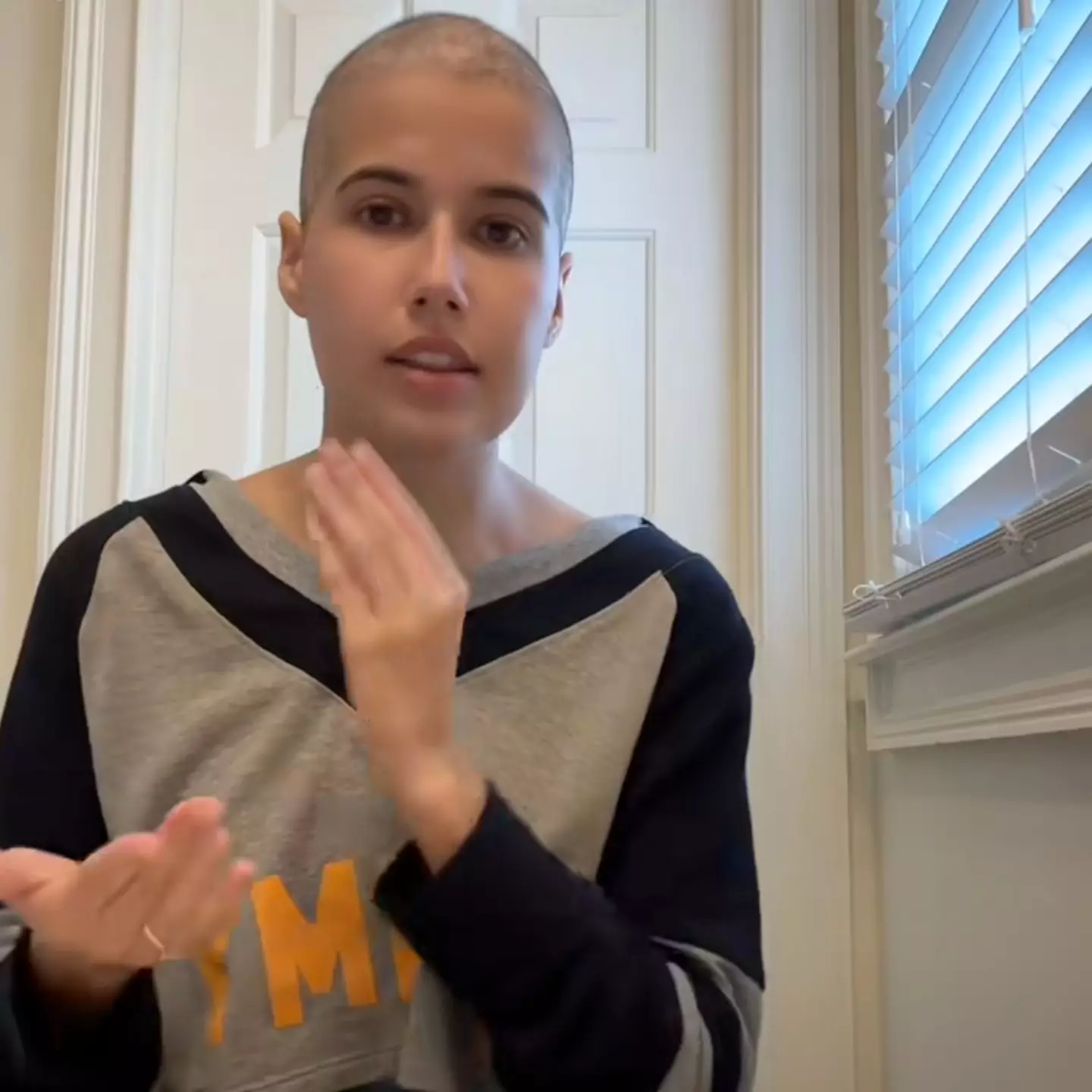
A woman has explained how one subtle yet persistent symptom eventually helped her get diagnosed with a rare blood cancer.
Medical student Anabel Brenner Schleicher was diagnosed with T-cell acute lymphoblastic leukaemia (T-cell ALL) four months after her first scheduled appointment with her primary care physician.
The rare blood cancer is likely to affect young adults and starts from the white blood cells called lymphocytes in the bone marrow, as per Cancer Research.
Statistics estimated that in 2022, an estimated 120,759 people were living with acute lymphocytic leukaemia in the United States. It can develop quickly over a few days or weeks.
Advert
Schleicher, 26, first complained of a subtle symptom to her doctor in March - a swollen lymph node on her neck.
“I had no other symptoms at the time other than the lymph node,” she said, according to an interview with People magazine.

“The main concern with the lymph node was that more enlarged lymph nodes were continuously popping up, going down my neck.”
Advert
Initially, she believed her gland had enlarged because she’d 'gotten sick’. But as it still hadn’t gone down after two weeks, she sought out professional medical advice.
Routine lab work, however, came back as normal, so she was referred to an ear, nose, and throat specialist, who claimed they ‘weren’t concerned’ by her enlarged lymph nodes.
Five weeks later, Schleicher returned, citing more swollen glands.
“That was when he ordered an ultrasound and my first lymph node biopsy. Even with this ordered, he reassured me that cancer was highly unlikely and he was only ordering it to be safe since the lymph nodes were being so stubborn," she explained.
Advert
Soon, her lymph nodes appeared above her clavicle and in her underarms.
After her first biopsy results expired, Schleicher had a core biopsy done and underwent bloodwork after she noticed bruising on her legs.
"I don't bruise easily," she explained in a video on her TikTok (@a_brenn98).
After being referred to a haematologist/oncologist, she was diagnosed with T-cell ALL. Due to her health issues, she was told she’d likely be admitted for aggressive treatment on July 31, 2025.
Advert
Learning her recovery would begin on that particular day, Schleicher decided to push her impending wedding up to the day before.
"I just wanted to wear my dress have my hair done, feel like me," she recalled. "So we did that."
Advert
Since starting treatment, she and her now-husband, also a student, moved in with her parents for extra support in getting to appointments.
As of October 2025, Schleicher is in the consolidation phase of chemotherapy, which lasts nearly three months, according to People.
This reportedly includes follow-up treatment being administered after the first phase of treatment, aiming to eliminate any hidden cancer cells that remain undetected by routine tests.
“Then interim maintenance lasting 56 days, then delayed intensification lasting 63 days, and then finally I enter maintenance, which lasts about 2 years,” Schleicher explained. “Once I reach maintenance, life should be more back to normal.”
Advert
.jpg)
Other symptoms of T-cell ALL
Enlarged lymph nodes aren’t the only subtle symptom that may indicate you have T-cell ALL, according to the Cleveland Clinic.
Patients in the past have complained of heavy night sweats, persistent fatigue, and an unexplained fever that stays above 103 degrees Fahrenheit (39.5 degrees Celsius) for two or more hours after home treatment.
Advert
Unexplained weight loss and pain in your belly, bones, or chest may also be manifestations of T-cell ALL.
It’s advised that you contact your healthcare provider if you notice changes in your body that may be signs that the blood cancer is getting worse.
